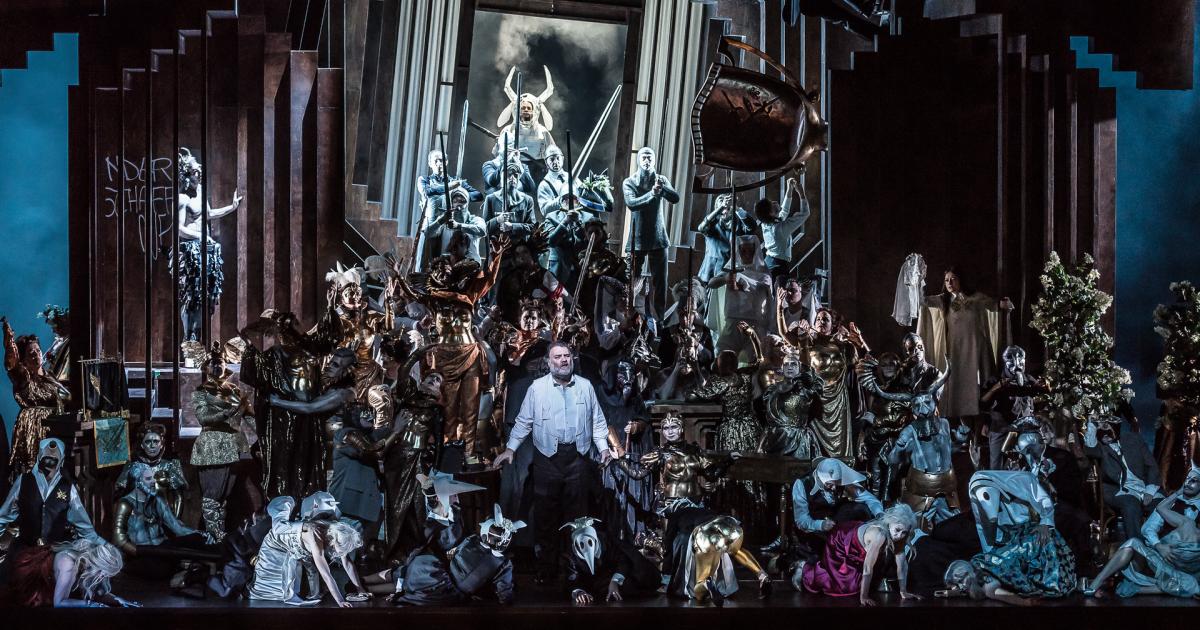My regular opera buddy attended by himself (living in London he is able to take advantage of last-minute tickets) - and found himself wedged in the top of the amphitheatre between two very nice but very fat ladies whose upper arms spilled over into his seating area. All three were baffled by Eva's departure at the end, and (not having read the reviews) assumed she'd been taken ill  . So much for Kaspar Holten's too-clever-by-half ending.
. So much for Kaspar Holten's too-clever-by-half ending.
 . So much for Kaspar Holten's too-clever-by-half ending.
. So much for Kaspar Holten's too-clever-by-half ending.



 production and what might turn out to be Bryn's finest four-and-a-half hours.
production and what might turn out to be Bryn's finest four-and-a-half hours.
Comment